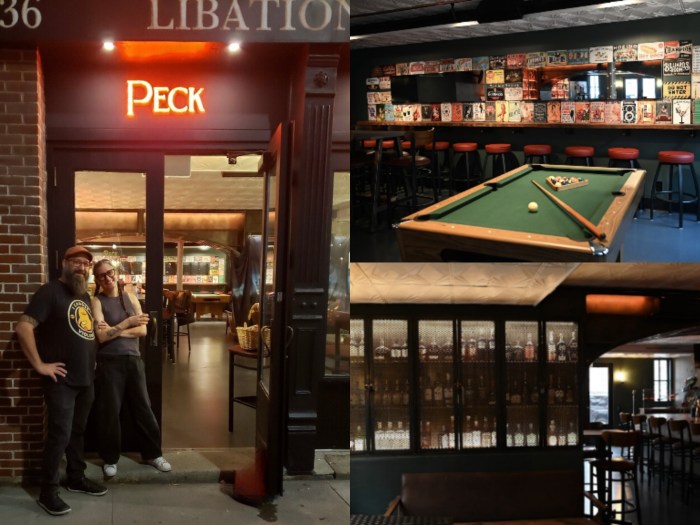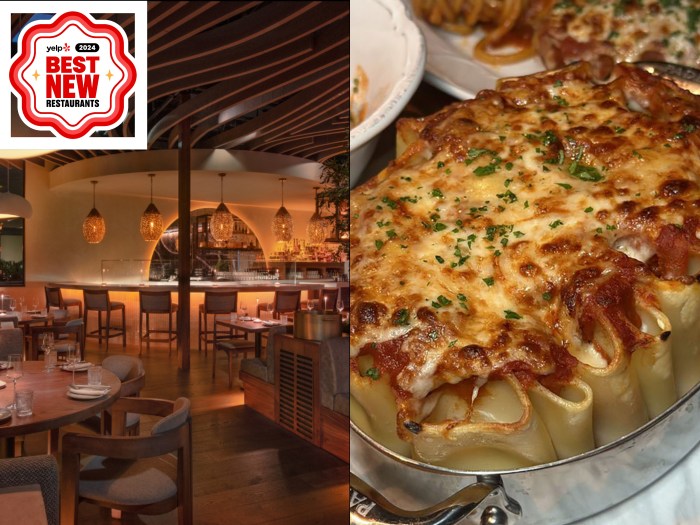
New Yorkers have seen options decrease when it comes to bars where they can play pool over the last few years. Beloved South Slope institution Mary’s closed in 2016. Greenpoint’s Boulevard Tavern closed in 2015. LGBTQ fixture The Abbey closed in February of this year; elsewhere in Williamsburg, R Bar is gone too.
Brooklyn resident and pool league member Anthony Malakian sees the pool spots leaving because the nightlife culture in the city is changing, especially in areas like Williamsburg and Greenpoint.
“I’ve been living [in Williamsburg] for 13 years, and a lot of the great, dive-y bars that had pool tables have closed down. Boulevard was a classic one. R Bar was a great dive, with metalhead owners. They had a pool table — rough crowd, but it was a cool place, and it was good people. Now there’s the Richardson, which weirdly enough has a pool table, but they don’t cater to pool players. It’s a beautiful table and a beautiful place to play, but no one’s ever playing it.”
Malakian, whose leagues play at Barfly and Paddy MaGuire’s Ale House in Murray Hill, says he doesn’t have many places left to play close to home.
“It’s the neighborhood, like Williamsburg into Bushwick is changing a lot. The type of bars that are opening now are pretty fancy. Now it’s about destinations, where people will come from Manhattan to go. … Most bars that have pool tables, they’re not pretentious. They’re not taking themselves as seriously as some other places are. Those bars are increasingly closing in New York City.”

In addition to bars with billiards shuttering, others, like the Upper East Side’s Merrion Square, are ditching their pool tables to repurpose the space. The owner of Finnerty’s in the East Village, Dieter Seelig, says he removed his bar’s table in 2010.
“The main reason why many bars have removed theirs is due to the amount of space required and the higher prices per square foot that renters pay,” Seelig said.
Besides the space they occupy, pool tables require a lot of maintenance, as NYC pool league player, Queens resident Hosein Babai, points out.
“It’s not just the amount of real estate the pool tables take up, it’s also the area around it. It becomes cost prohibitive for bar owners, unless it is an attraction and that’s what draws people there. If it is an attraction, you definitely have to keep it clean. Re-felt it, get the bumpers done. One of the bigger problems about having a pool table in a bar is that you’ll have people who spill drinks on the table, or sit on the table, which brings it out of alignment. … If [bar owners] don’t take steps toward ensuring its longevity, it’ll be falling apart.”
Malakian agrees, and says a lot of places get pool tables but then don’t take care of them. When a table is in bad shape, it may as well not even be in the bar, he said.
“People who like playing pool won’t go to that place, and people who don’t care as much about playing are just like, ‘This isn’t working.’ ”
Bars for players vs. bars for Players
The difference between bars that maintain their tables and bars that don’t — and between bars that people serious about pool go to and bars that they don’t — divides NYC’s pool bars into two categories.
For Babai and Malakian, there are bars that prioritize their status as pool destinations a bit more and so attract league players, and there are bars that simply have the pool table for fun and want it to serve as a more relaxed, social component. Malakian explains that league players are more competitive, and a lot of bar owners prefer more of a laid-back, date night vibe for their establishments. However, it can pay to attract league players, as that can guarantee those players are coming in multiple nights per week to play and practice.
Where you might want to go to play in the city on any given night depends on whether you’re going alone or with friends, whether you want to hone your skills or meet people, and what kind of mood you’re in.
“If I’m just drinking and partying, then I want it to be a little friendlier,” Babai says. “One of the things I like about Barfly is that the late-night crowd that comes there to play pool, they’re among a big group of friends. If I’m looking to practice, I’m looking to go to a place that pool’s their focus.”

‘Not everyone wants to sit around and look at their phones’
Helpfully, the American Poolplayers Association has a location finder so you can find what bars by you have a table — and which have been given the group’s seal of approval.
There are still some bars left flying the flag of neighborhood hangout, the kinds of bars that unfortunately seem to be disappearing in all boroughs. 40 Knots in Carroll Gardens is one of the spots that still doesn’t take itself too seriously, and for nine years, has remained a beloved go-to for regulars and new customers alike to mingle. The pool table is at the center of the convivial spirit, according to owner Nicki Humphrey.
“It’s a big part of my bar. We’re a ‘Cheers’-type bar, very neighborhood-friendly. A lot of our regulars become very good friends over that pool table. They come in to play on their own and then they get to know each other. … Not everyone wants to sit around and look at their phones.”
Humphrey credits the pool table with helping people walk in off the street and start talking to other patrons without being intimidated.
“Regulars will say, ‘Sure, come play, let’s take turns, you take over.’ It’s sweet: It’s a big positive. It brings people together.”
Humphrey says if she ever needs the space for a dance party or something similar, the table can always be moved. She has no intention of ever getting rid of it because it’s such a big part of her business and of the bar’s identity.
The sad reality is that like any other kind of business in New York, bars with pool tables are closing in the wake of changing neighborhoods. The good news? Plenty of them are still thriving, from competitive league-focused spots to gathering places where the table is just the centerpiece of socializing. The key is to find the one closest to you, get there, play, and keep it alive.
Shoot some stick
Here’s a sampling of some bars where you’ll find a friendly, welcoming atmosphere, no matter your skill level.
Brooklyn
40 Knots, 200 Columbia St., Carroll Gardens
The Dram Shop, 339 9th St., Park Slope
Alibi, 242 Dekalb Ave, Fort Greene
Bronx
Shamrock Inn, 1729 Crosby Ave., Pelham Bay
Skyline Bar & Lounge, 1511 Wilkinson Ave., Morris Park
Manhattan
Ace Bar, 531 E. 5th St. East Village
Barfly, 244 3rd Ave., Murray Hill
Fat Cat, 75 Christopher St., Greenwich Village
Queens
BQE Billiards, 70-02 34th Ave, Jackson Heights
Paddy Quinn’s, 42-07 162 St., Flushing
Staten Island
Unique Lounge, 1757 Arthur Kill Rd., Rossville
Richmond Republic, 4459 Amboy Rd., Eltingville



































